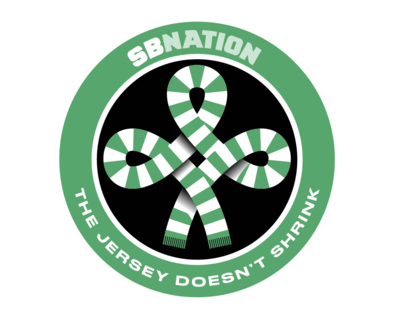When Celtic signed Scott Brown from Hibs on May 16th 2007 for £4.4 million, fans were delighted. We had signed a player who at only 21 years old was the fulcrum of a Hibs side which had won lots of plaudits with very attacking football. The fact that Celtic were willing to pay so much money for such a young player showed that the club placed a lot of faith in Brown being a success, and the faith has generally been rewarded, as ten years on Brown is arguably Celtic's most important player.
Brown's debut season was a mixed bag, but generally a success. He was still the same box to box midfielder he had been at Hibs, but perhaps his lack of goals persuaded Gordon Strachan to slightly change his position the following season. Brown helped Celtic qualify for the Champions League, but ultimately lost his place in the team through suspension as the more experienced pair of Barry Robson and Paul Hartley guided Celtic to an improbable league title.
The following season has to go down as one of Brown's best for the club. Playing in a more defensive minded role, he ran the show in the league cup final win over Rangers and was voted SPFA Player of the Year. Unfortunately, suspension and injury took it's toll towards the end of the season as Celtic couldn't retain the title and Gordon Strachan left the club.
Tony Mowbray's time at Celtic is best forgotten about, as is the season Brown had, missing large parts of the season through injury and being sent-off for nothing against Rangers at Ibrox. The appointment of Neil Lennon as manager suggested better times lay ahead though...
Scott Brown was a player reborn during Neil Lennon's time at Celtic. He was captain and a mainstay of the side, as Celtic began to assert themselves as the best team in Scotland. Brown also started chipping in with goals, like the legendary effort against Rangers which saw the birth of 'The Broony'.
Brown's attitude seemed to change under Lennon, he had always been a very committed player, but this time, playing under a manager who made him the focal point and captain of the team, he also added a more mature side to his game, with the old red mist only flaring up on the odd occasion. He also picked up trophies galore as captain as Celtic won three titles in a row, and performed heroics in the Champions League as Celtic reached the last sixteen of the competition.
Lennon's departure at Celtic had a big effect on Brown, as this seemed like a manager he really liked and respected, which, and this is only my opinion, may not have been the case with Lennon's replacement, Ronny Deila. In retrospect Deila was doomed from the start at Celtic, parachuted in from the Norwegian league, he failed to qualify for the Champions League and it was difficult to kick on from there. Brown's injury problems returned with a vengeance, and last season in particular he looked a shell of the player who had previously dominated the league, a nadir being reached in the Scottish Cup semi-final defeat to Rangers, where Brown was outplayed by Andy Halliday of all people and missed a penalty in the shoot-out. Perhaps his time at Celtic was coming to an end...
The appointment of Brendan Rodgers last year was a sign from Celtic that after the Deila 'experiment', it was time to take things seriously again, and Brown has responded to this by being an integral part of the team.
Brown's influence is badly missed when he isn't playing, as recently as Friday night he would have controlled the midfield against Aberdeen by putting his foot on the ball and slowing the game down. Brown's contract runs out in 2018 and I'm sure that Brendan Rodgers wants him to sign a new one, he is still only 31 and injuries permitting still has plenty to offer the club. The goal below sums up Brown's season - the game is over, it's in injury time, but he is still full of running eager to get involved.
Looking at Broony's Celtic career in it's entirety, it has had its ups and downs as most long stints at a club often have, but ten years on from the signing he is Celtic's key man, the player who is always first on the team sheet, the sort of streetwise 'gallus' player that opposition fans hate and home fans love, and that's the sign of a real success.
